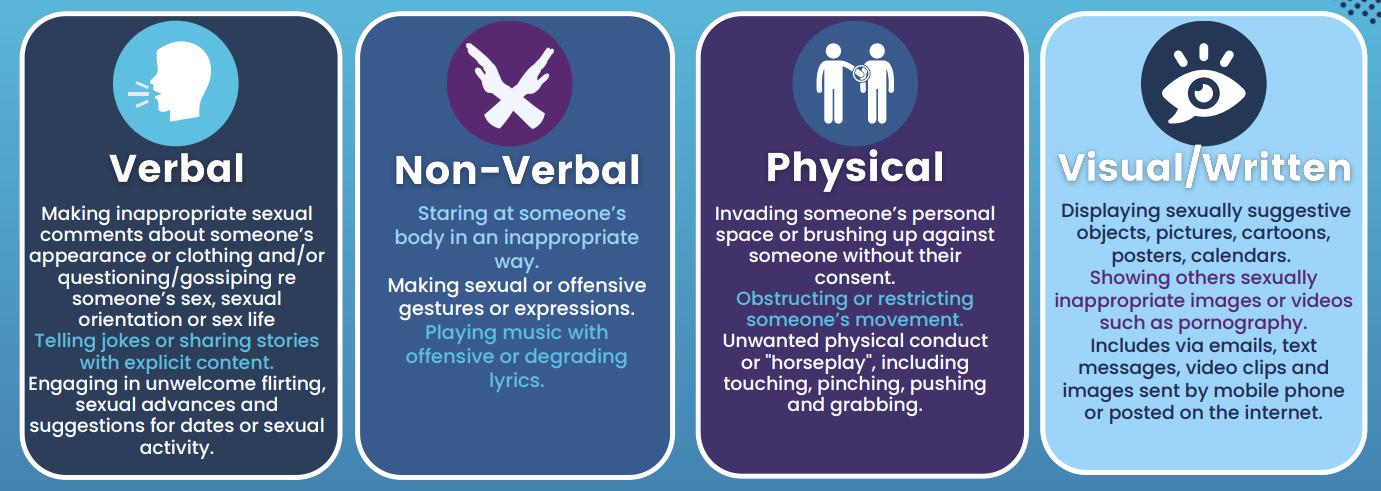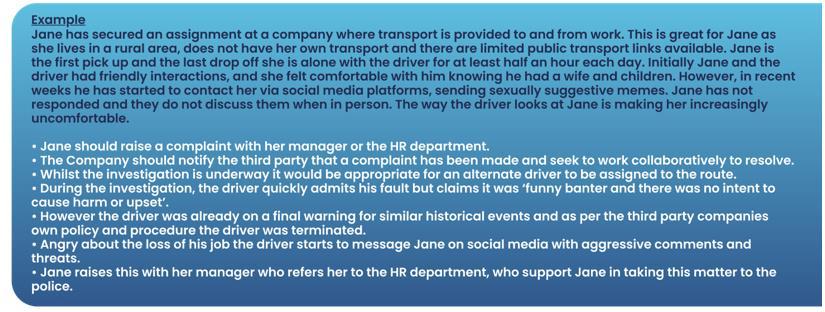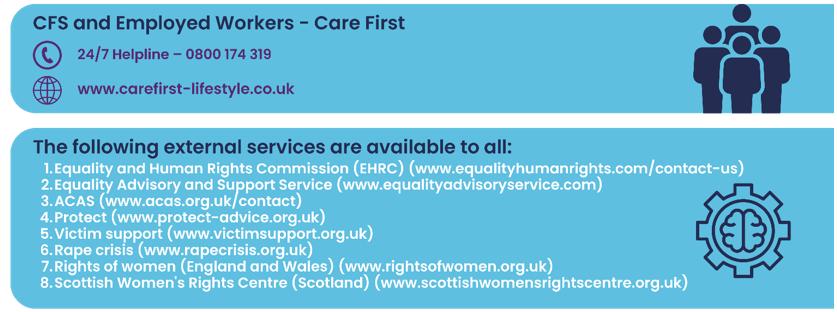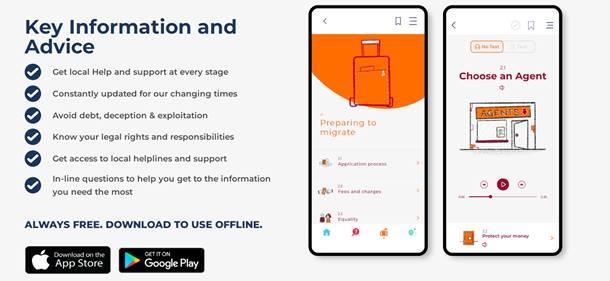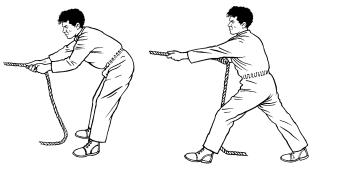


1. Our business
Originally founded in 1998, we are now one of the top five largest industrial providers in the UK, supplying temporary, contract and permanent workers to companies across industrial, commercial, technical, construction, fmcg and driving sectors. We offer nationwide coverage through high-street branches, specialist divisions and onsite managed solutions. With a turnover of almost £200 million in 2019, we currently payroll in excess of 12,000 temporary workers each week and cover more than 3 million shifts per year.
Through collaboration and innovation, we increase our Hirer’s productivity and exceed their efficiency targets, all while maintaining full compliance and commitment to service excellence.
Thishandbook hasbeen created with theintention of providing information to our applicantsand workers aboutimportantindustry legislation, basic health and safety information, social and ethical compliance practices, key expectations we have of your conduct whilst representing the employment business, followed by key policies and procedures you need to be aware of.
This handbook is to be used in conjunction with Contract For Services agreements. Alternative handbooks are provided where other Employment Status agreements are entered into Sector specific handbooks are provided in addition to this agreement for gap Technical Limited and Driving Force Recruitment.

This policy is applicable to all businesses, offices and operations within the gap personnel group, including:
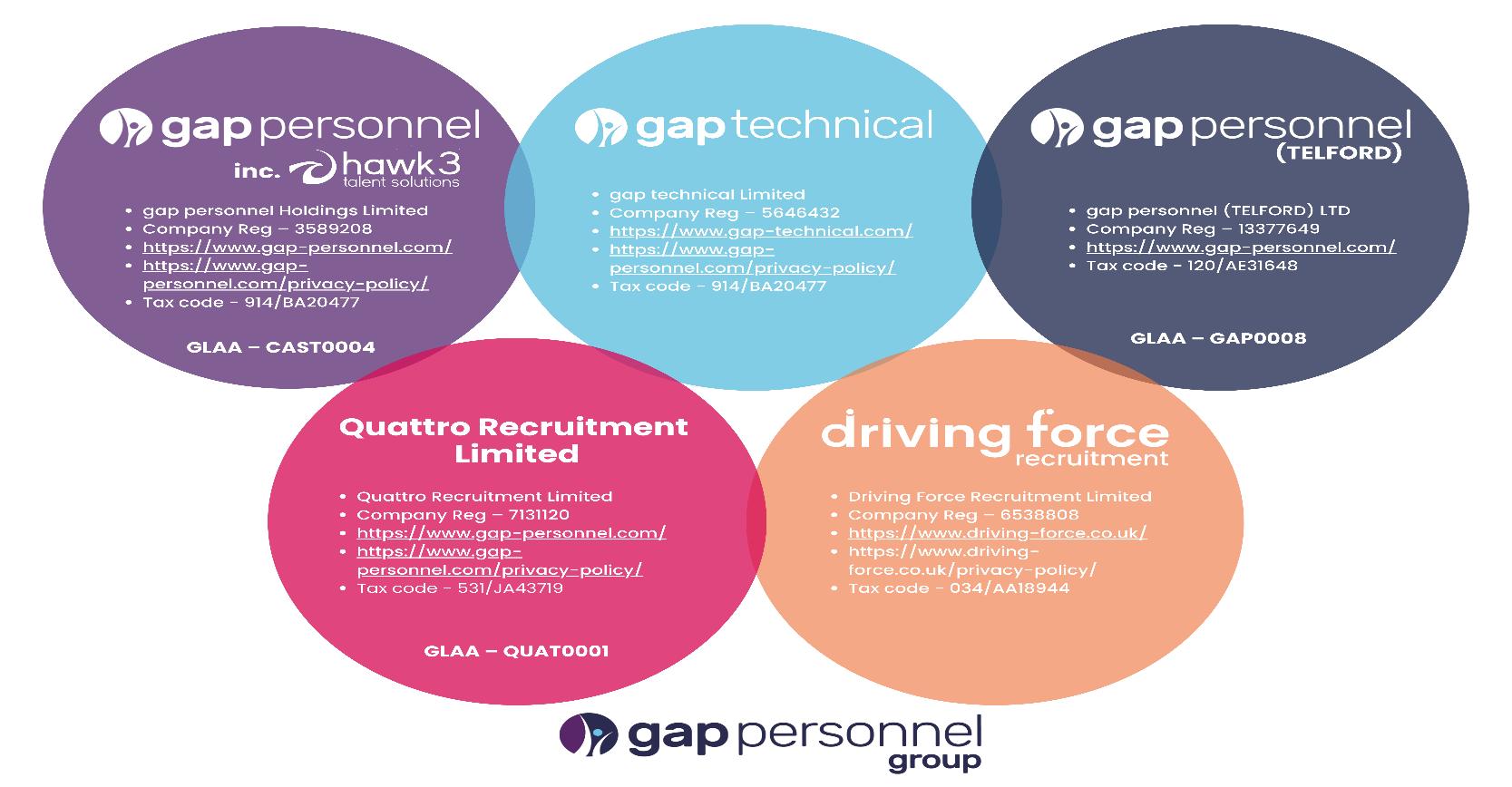
Please ensure you take the time to read this handbook, if there is anything you do not understand or need further advice on please feel free to ask us.
2. Understanding employment status
ContractForServices
Contract For Services is the most common contractual scenario engaged between employment businesses and workers. Workers providelimited amountsofworkthroughtemporaryassignmentsandhavenomutualityofobligationtothebusinesstoacceptany assignments offered, in the same way, the business has no obligation to offer assignments to the contract for services worker. Contract For Services workers do not have employee status.
ContractOfService
Contract Of Service agreements are rarely used within our business however, those who are engaged under a Contract Of Service are described as employed workers and benefit from a guaranteed set number of hours over an agreed period of time. A Contract Of Service is an employment contract which is between and employer and an individual and as such there becomes a mutuality of obligation. Employed workers are considered as having employee status.
Workingviaintermediaries
An intermediary is where you work for a Hirer through an intermediary. If working via an intermediary it is essential, you fully understand your employment status and responsibilities based on the model you are engaged. We have a strict PSL of approved intermediaries, please check with a consultant to make sure the intermediary you wish to be engaged by is on our PSL.
Ltdcompany
A limited company is when you run your business and services are supplied through the business rather than yourself as an individual. Operating as limited company means you are fully responsible for everything it does and its finances. On condition that the necessary documentation is provided, we will engage a Ltd company via a business-to-business contract. The determination of IR35 status of a Limited Company will be established by the end client as per the IR35 rules.
ConstructionIndustryScheme(CIS)
CISarrangementsarerestrictedtoindividualswhoarefullyregisteredunderthegovernmentCISscheme;andwheretheandwhere theassignmentonofferisauthorisedtobecompletedunderCISregulations.IfyouareCISregisteredpleaseadviseyourconsultant who will inform you whether the assignment is approved for CIS prior to you accepting an opportunity.

3. Entitlement to work in the UK
You mustbelegally entitled to work in theUK. Thelocal office arelegally required to check and validateyour identificationand Right to Work in the UK prior to placing you onto an assignment. Should your documentation and therefore Right to Work in the UK expire whilst you are in our employment you will be requested to provide new documentation. If you are aware of any pending changes to your visa or other permissions to work in the UK, you must inform the employment business immediately.
If we discover you do not have permission to live and work in the UK, and or your permission to do so is revoked or expired and you cannot provide new documentation, we are entitled to terminate your assignment immediately without giving you any notice or paying you in lieu of notice and will be obliged to inform UKVI
4. Our professional reputation
Please conduct yourself professionally at all times. Be polite and aim never to cause offence or misunderstanding. Remember that when on assignment you are our ambassador and we request you do your best to promote the interests of us and uphold our policies at all times.
Below is a non-exhaustive list of expectations surrounding conduct whilst on assignment with us:
a) Co-operate with the Hirer, its employees and other workers. Accept the supervision, direction and control, and instruction of any responsible person in the Hirer’s organisation.
b) Observe any rules and regulations of the Hirer’s workplace to which your attention has been drawn or to which you might reasonably be expected to anticipate or have been delivered.
c) Treat with courtesy and respect the Hirer, all fellow workers, our staff and any site visitors.
d) Conform to the standard operational working hours and rest breaks for the Hirer’s workplace (unless alternative arrangements have been made in advance by the employment business and the Hirer).
e) Take all reasonable steps while working for the Hirer to safeguard your own, and the safety of others who may be present or be affected by your actions during the assignment and comply with the health and safety policy of the Hirer.
f) Do not engage in any conduct detrimental to the interests of the Hirer, the employment business, yourself and or others.
g) Do not use any motor vehicle or any mechanised equipment in connection with any assignment unless you hold the relevant certification, have undertaken the necessary training and have confirmed the proper insurance cover is in force for such use.
5. Assignments
Availabilityforassignments
Once successfully registered with us you will be placed onto our availability list and considered for suitable assignments. It is your responsibility to notify us of your availability thereafter and we would encourage you to keep regular contact with the branch every Friday detailing your availability for thecoming week. By doing so you ensure thatyou are considered for all positionsincoming that week. This will also demonstrate your enthusiasm and commitment to obtaining employment opportunities with us.
Assignmentoffers
Where you are offered an assignment that we believe to be suitable, you will be notified by telephone and provided full information regarding the Hirer, the role and the assignment. If you accept you will be provided with confirmation in writing in the form of a “Temporary Assignment Details Form” detailing the Hirer and site-specific information including pay, any anticipated AWR enhancements, holiday entitlement and health and safety details.
Reminder: Employment is freely chosen, you are free to accept or reject any work offered, and we would stress the importance of only accepting an assignment where, you are confident the Hirer, role and assignment match the criteria you are seeking and you can commit to completing the assignment in full.
If you are uncertain about the assignment on offer please reject it providing reasons so we can improve our understanding of what opportunities to offer you in future. Where suitable assignments are continuously rejected (five or more occasions) this may be cause for consideration to remove you from our availability.
Outsideassignments
You are not contracted to work for us and as such you are free to seek and undertake employment or assignment opportunities elsewhere. If you do undertake any assignments elsewhere alongside those undertaken with us, you should inform us of any hours completed.ThisistoensurewemeetWorkingTimeRegulationrequirementsandwhereapplicableensurecompliancewithanyvisa restrictions you may have.
Scopeofassignment
Whileonan assignment,you mustnotcarryoutany job functionsor tasks thatareoutsidethescopeof your assignmentasnotified to you. If, whilst working on an assignment, you are requested by the Hirer to carry out a task outside this scope, or for which you have not received required training please contact the employment business immediately.
6. Conduct
Personalappearance
Our workers are renowned for maintaining a high level of personal appearance and dress at all times. Presenting a professional imageisveryimportant. Inparticular,youshouldfollowallinstructionsfromtheHirerregardinguniforms,safetyequipmentandPPE, acceptable dress and conduct, specifically with reference to health, safety and hygiene. If dressed inappropriately you may be sent home and required to return suitably attired. In such circumstances, no payment will be made for time spent away from work. In circumstances where you may consider that observing the dress code may contravene principles regarding discrimination, you should contact the employment business in order to discuss the issue.
Workwear/Uniform
Some Hirers may operate a work wear / uniform policy on their site. You will be advised in advance of an assignment the specific detail of a Hirer’s work wear / uniform policy.
Equipment
From time to time you may be issued with other items such as locker keys, swipe cards or other equipment to undertake the assignment.
Personalprotectiveequipment(PPE)
PPEmeansallequipmentandclothingwhichisintendedtobewornorheldbyapersonatworkandwhichaffordsprotectionagainst one or more risks to health or safety. PPE includes the following:
• aprons, gloves and safety footwear.
• high visibility jackets
• eye protectors, safety harnesses, respirators & life jackets.

• safety helmets.
• clothing designed to protect against adverse weather conditions
The Personal Protective Equipment at Work Regulations 1992 (the PPE Regulations) state that workers must have suitable PPE whenever they may be exposed to a risk to health and safety whilst at work.
TheprovisionofPPE/workwearprovidedbyyou
Should you wish to provide / purchase or source your own PPE or work wear, you are entitled to do so, providing the items meet regulatoryortheHirer’sstandards.Indoingsoyoupermittheemploymentbusinessand/orthehirertoinspectitemsthatyouhave providedyourself to ensure they comply. You may request theloan of PPE or work wear, subjectto theconditions below,atany time.
ProvisionofPPE/workwear/equipmentprovidedbytheemploymentbusinessortheHirer
a) You will be advised for each assignment of any health and safety risks and the PPE required reducing risks associated. It is a condition of your contract and responsibilities under the Health and Safety at work act that, where it is requirement of an assignment for PPE items to be worn, that you will do so at all times. By accepting an assignment, you agree to adhere to the work wear / uniform code and accept that failure to do so will result in the termination of your assignment and your removal from site.
b) Where required, PPE, work wear items and/or equipment will be provided free of charge, for use during an assignment. FormalwrittenagreementwillbeenteredintoasavariationtoTermsofEngagement,whichwillincludeascheduleofitems and the associated liability issue of any PPE/work wear or equipment provided by the employment business.
c) By accepting PPE or work wear provided by the employment business or the Hirer you agree that such items remain the property of employment business or the Hirer until 60 shifts have been completed (average of 12 weeks work), save where the variation of Terms of Engagement specifies an alternate timeframe
d) It is the employment business policy to reissue previously used and returned PPE or work wear, provided it is in a fit state and cleaned for use by another user.
e) If the employment business or the Hirer provides any PPE, work wear or equipment to you to be used in the course of an Assignment with the Hirer, you must take reasonable care of those items. Should items require re-issue due to loss or damage beyond fair wear and tear, the employment business reserves the right to deduct the cost of replacement from any sums owed to you, as provided for in the variation to your Terms of Engagement.
f) Where required to, should your assignment end, or the employment business or the Hirer so request, you agree to return theitemsinareasonablecondition,subjecttofairwearandtearandcleaned,within48hoursoftheendofyourassignment or such request. In the event that you do not comply with these obligations, the employment business reserves the right to deduct the cost of replacement from any sums owed to you as provided for in the variation to your Terms of Engagement.
g) The question of the reasonable care of the equipment or clothing will be solely assessed by the employment business ’s reasonable judgement.
Security
PleaseensurethatyoucomplywithHirersecuritymeasuresatalltimes,includinganyinstructionsrelatingtothewearingofsecurity badgesoridentitycards.Pleasekeepconfidentialinformation,valuables,equipmentandmaterialsadequatelysecuredat alltimes. You must never be in unauthorised possession of any property, including cash, belonging to the Hirer, your colleagues or the employment business. Report suspicious incidents or loss of items immediately to the Hirer or the employment business.

Stopandsearch
Both the employment business and the Hirer reserve the right to stop and search fully any workers (or their vehicles), prior to entry or before exit from the working location or during your shift, using whatever reasonable means are at their disposal. A search may be made of your office, desk, filing cabinet, car, bag or person.
Smoking
It is illegal to smoke in all enclosed or substantially enclosed public places and workplaces. You must adhere to the Hirer’s smoking policy onsite and only smoke in the permitted areas or off site if smoking areas are not provided.
Alcohol,drugs,substancesofabuseandlegalhighs
Weregarddrunkennessordisorderlyconduct(includingbeinginpossessionoforundertheinfluenceofalcohol,drugs,unauthorised substances , misusing substances or legal highs) whilst at work as a serious matter, such behaviour will not be tolerated and if identified we reserve the right to inform the police of any such behaviour. You may be asked by us or our Hirers to take part in a random alcohol or substance test. You should inform us of any prescribed drug(s) you are taking or course of treatment you are following which may impact on the result of a random alcohol or substance test or which may have an impact upon your ability to properly perform your job (e.g. by making you drowsy, affect concentration or have limitations on operating machinery).
Publicityandcompetitorrelations
Please be mindful when in contact with employees of competitors or suppliers of the need to avoid (intentionally or unintentionally) revealing information which could be used by a competitor. Should you be contacted by any section of the media in relation to us or any assignment through us, you will inform the employment business immediately before making any response. In no circumstances should we or any Hirer’s name be identified in any statement, interview or other communication. If you have any doubts as to what is expected, please ask the employment business’ representative. By accepting an assignment you agree that you will comply with requests outlined. Failure to comply will result in you being immediately sent home and your assignment may be terminated.
7. Working time regulations
TheWorkingTimeRegulations1998areprimarilyhealthandsafetylegislationandareintendedtoprotectworkersfromtherisksthat arise out of working excessively long hours or for long periods without breaks. The Regulations provide that all workers should be entitled to:
a) a maximum average working week (inclusive of overtime) of not more than 48 hours (the averaging period to be 17 weeks or longer in some cases), except where the individual has in writing agreed to the 48 hour opt out;
b) a 20 minute rest break where the working day is longer than 6 hours;
c) a minimum daily rest period of 11 consecutive hours in each 24 hour period;
d) a minimum of 24 hours rest every 7 days (or 48 hours every 14 days). This rest period does not have to include a Sunday;
e) a restriction of 8 hours night work in every 24 hour period, the restriction of 8 hours to be averaged except where the work involves special hazards or heavy physical or mental strain in which case it can never exceed 8 hours; and
f) 5.6 weeks paid annual leave - apart from the excluded sectors no opting out of the annual leave provisions, no carrying overofholidayfromoneannualleaveyeartothenext,subjecttoanyexceptionsdetailedwithinyourtermsofengagement and no payments in lieu except on termination of employment;
g) protection through the Employment Tribunals from suffering detrimental treatment or dismissal by the employment business for taking entitlements under the Regulations.
There are alternative regulations in place for young workers, if you are a young worker you must have:
a) a 30 minute break if they work more than 4.5 hours;
b) a minimum of 12 hours rest between shifts;
c) cannot work more than 8 hours per day / 40 hours per week;
d) a minimum of 2 (consecutive) days rest in a 7 day period
If, while working with a Hirer, you are not provided with your statutory rest breaks, you should raise this immediately with the employment business.
8. Recording hours worked
Before each assignment you will be advised of the process you will be required to follow for recording hours worked at the given Hirer’s site. This information will be communicated by your consultant and is available on the Temporary Assignment Schedule which is emailed to you at the start of each assignment. Different methods may apply at different sites. Generally the process will follow one of the following formats:

Individualtimesheets
You would be issued with an individual timesheet which will be renewed on a weekly basis. Each week, simply follow any clocking in and out procedures required by the Hirer, enter the hours you work on the timesheet, have this signed by an authorised representative of the Hirer and return it to the employment business by no later than 6.00pm on the Friday of the assignment week.
Bulktimesheet/manualsigning
Attendance sheets will be present on site for you to log your name, start time, end time and require a signature. Where this method is in place please ensure you print your full name including any middle names, clearly and in capitals to reduce any errors in processing. The Hirer will transfer hours to a bulk timesheet and submit to us on a weekly basis.
Swipecards/fobaccess
Some sites may issue you with a swipe card to provide access into and around the building and also to log your hours of work. It is essential that if provided with a swipe card you have this with you each day or hours may not get recorded and there will not be a guarantee that you can evidence being on site. You are not to give your swipe card / fob to anyone else and this must be returned to us or the Hirer should your assignment cease.
Biometrichandscanners
At some sites biometric hand scanners have been installed to record hours worked. If working at a site containing these you will get set up on the hand reader prior to your first shift, you will be issued a pin number that is personal to you and you will need to enter thepinnumberandplaceyourhandintothereaderforverificationatthestartandendofeachshift.Shouldyouhaveanydisabilities or conditions that you feel may hinder your usage of the biometric hand scanner, please speak to your consultant as we have alternativemeasuresto avoid any detriment to your abilities to sign in and out. In somecasesyou will also beasked to register your department and/ or category of work. Remember, it is your responsibility to follow the correct procedures and failure to do so may result in delay or error in processing your pay.
Hoursofworkandovertime
Thehoursofworkapplicabletoanyassignmentwillbenotifiedtoyouinadvanceoftheassignmentstartdate.Ifovertimeisavailable you will normally betold in advance.You are freeto accept or rejectovertimeoffered. If youareasked to work any hours differentto those notified at the start of the assignment, please tell us so we can confirm the arrangement, adherence to working time regulations and the rate of pay. Additional hours are not always paid at a higher rate.
Excessiveworkinghours
The total hours worked in any 7 day period shall not exceed 60 hours, except in exceptional circumstances where all of the following are met:
a) This is allowed by National Law;
b) This is allowed by a collective agreement freely negotiated with a workers’ organisation representing a significant portion of the workforce;
c) Appropriate safeguards are taken to protect the workers’ health and safety;
d) Theemployer can demonstratethat exceptional circumstancesapply such asunexpected productionpeaks, accidentsor emergencies.
If at any time, you are requested to complete hours in excess of 60 hours please speak to the employment business in advance so we can ensure the request complies with the criteria detailed above.
Timekeeping
Always arrive for work in a good time before the time you are due to start in order to ensure you arrive at your work station for the start of your shift. If you anticipate being late at any time, contact the employment business immediately. Punctuality is very important. On the firstday of an assignmentwerecommend thatyoualwaysallowfor unexpected delaysand aim to arrive in good time ready to commence work.
9. Absence from work
As soon as you are aware that you are not going to be able to attend your shift you must notify us by telephone. We offer a 24/7 service meaning you are guaranteed to be able to get in contact with a member of our team. By notifying us as early as possible it will enable us to communicate to the Hirer and arrange any necessary cover for your absence.
You should try to ensure that, wherever possible, any medical or dental appointments are made outside your shift hours. Holidays, JuryService,MilitaryServiceorotherreasonsshouldbeagreedinadvancewiththeemploymentbusinesswhowilladviseyou ofthe procedure to be followed.
Sickness
Where your absence is related to sickness you must make this clear when you call to notify us, providing full details and where possible, your expected date of return. You must notify us each day of absence where it is sickness related unless otherwise agreed.

Pending the type of sickness and environment you are working in you may not be permitted to return to work until you have been clear of illness for 48 hours – e.g where you are working in a food environment and have been vomiting.
Fitnotesandself-certification
If your absence means you are away from work for up to 7 days, we may request a self-certification form from you when you return to work. If your sickness absence takes you over 7 days in a row (including non-working days), it is advised you visit your Doctor/GP who would provide you with a fit note. The fit note will advise whether you are either ‘not fit for work’ or ‘may be fit for work’.
Employers can take a copy of the fit note, you should keep the original. If you do not qualify for SSP we will provide you with an SSP1 form which you can use to facilitate a claim through the job centre.
Maternity/paternity/adoption/bereavementleaveandpay
If you becomepregnant,you should inform theemploymentbusinessso they can arrange for ariskassessmentto becarried out to ensure the health and safety of you and your baby whilst at work.
To ensure accurate information is provided in relation to your eligibility to maternity / paternity / adoption / bereavement entitlements please contact Charlotte Owens via our payroll helpline on 0808 1785 534.
10. Pay, Holiday Pay and Pay Queries
We know how important it is to be paid promptly and it is always our intention to ensure your pay is accurate. Provided the appropriate timesheet procedures have been completed as instructed, payments will be made directly by credit transfer into your bank or building society account on the Friday following the week you worked. Payments will only be made to a bank account of which you are the registered account holder or joint account holder. Full payment details will appear in your pay advice slip.
Payadviceslips
You will receive your pay advice slip by email on a Thursday prior to monies clearing in your account on the Friday. Your pay advice slipwillbesenttoyouusingthee-mailaddressyouprovidedinyourregistrationdetailsorCV. Papercopiesmayberequestedfrom your local branch in exceptional circumstances. You mustinform theemploymentbusinessof any changesto your postal or e-mail address. Payslips will contain a reminder of:
a) your holiday leave year start date;
b) the fact you have 12 months from that date in which to take any accrued holiday leave.
TaxandNationalInsurance
We have a legal obligation to deduct PAYE and National Insurance Contributions from your pay. To avoid paying more tax than necessary or any delays in processing your pay, we must receive your P45, P46 or a P38s before you start your first assignment. If you do not pay PAYE and NIC in the usual way, special arrangements must be made through your branch.
Taxcodequeries
Once you have supplied us with your tax documents, and started working, any queries relating to your tax code should be directed to HMRC on 0300 2003300. Please quote the reference no that relates to your employer as detailed in the Our Business section pg3
You will also need to provide your Temporary Worker Reference number, which is on your pay advice slip. If you are being engaged via an intermediary please contact them directly to obtain their reference no, you would need to quote their reference no to HMRC not that of the employment business.
NationalInsuranceNumbers(NI)
YoumustprovideuswithproofofyourNInumber.IfyoudonothaveanNInumberyet,youcancommencework,butyoumustapply for an NI number and provide us with proof of your application. You can apply by contacting the NI number application line - open Monday to Friday, 8am to 6pm:
Telephone: 0345 600 0643. Text phone: 0345 600 0644
Remember to bring in your NI Number as soon as you receive it.
HolidayPay
We recognise the right to paid holiday by our temporary agency workers and employees and at all times seek to comply with legislation.
Leaveentitlement
a) UndertheWorkingTimeRegulations1998youqualifyforpaidholiday.Your holidayentitlementis5.6normalworkingweeks (28 days if your normal working week is 5 days) paid holiday in each holiday year. This includes public holidays; b) HolidaypaywillbecalculatedandpaidinaccordancewiththerelevantprovisionsoftheEmploymentRights(Amendment, Revocation and Transitional Provision) Regulations 2023 relating to Agency Workers defined under the regulations as Irregular Hours or Part-Year workers at minimum of 12.07% of hours worked;

c) At some clients, your holiday entitlement may increase following completion of the 12-week AWR period, your consultant will notify you at the point of placement and this will be detailed on your assignment schedule if this applies and to what value;
d) Leave entitlement accrues in proportion to the amount of time worked by you on Assignment during the Leave Year. You do not accrue annual leave when you are not on an assignment;
e) TheLeaveYearmeanstheperiodduringwhichyouaccrueandmaytakestatutoryleave,yourspecificleaveyearisdetailed within your contract;
f) Asyouarepaidweeklyinarrears,asmall%ofholidaymayaccrueinthefollowingweekspayrollprocessingrelatingtowork completed up to and including thefinal week of yourleave year. Thisholiday accrual willbemadeavailablefor you to take in a reasonable timeframe of the new leave year. The timeframe will be agreed with the relevant Regional Director, taking into account your particular contract arrangements, the date of your proposed holiday request and client requirements;
g) Any other outstanding annual leave not taken during the leave year will be lost subject to:
• Other statutory entitlement preventing the leave from being taken such as:
Ifaworkerisunabletotakesomeoralloftheirannualleaveasaresultoftakingaperiodofmaternityorother familyleave. Inthesecircumstances,annualleavethathasbeencarriedovermustbeusedwithin12months starting from the end of the leave year in which it was accrued;
If a worker is unable to take some or all of their annual leave as a result of being off sick. In these circumstances, annual leavethathasbeen carried over mustbeused within 18 monthsstarting from the end of the leave year in which it was accrued.
• The Employment Business not having complied with its legal obligations to:
Recognise the Agency Workers right to annual leave, or payment for that leave;
Give the Agency Worker a reasonable opportunity to take the leave or having not encouraged them to do so;
Inform the Agency Worker that any leave not taken by the end of the leave year, which cannot be carried forward is lost.
h) Holidaysmaynotbecarriedover,paidontopofafullweeklywageortocoversicknessorunauthorisedabsence;itwillonly be processed where the holiday is actually taken. This is clearly stated in the Terms of Engagement that are issued to ALL temporary workers
Exampleofstandardentitlementcalculationon40-hourwk
After6weekscontinuousemploymentattheBasicof40hrsperweekyouwillhaveaccrued 28.97hourswhichwouldberoundedup to 29 hours entitlement.
Exampleofstandardentitlementcalculationon16-hourwk
After 6 weeks continuous employment at the Basic of 16 hrs per week you will have accrued 11.59 hours which would be rounded up to 12 hours entitlement.
Exampleofstandardentitlementcalculationonvaryinghoursperwk
After 6 weeks continuous employment at the Basic of 40 hrs for 3 weeks and 16 hours for 3 weeks you will have accrued 20.28 hours which would be rounded down to 20 hours entitlement.
Paycalculation
a) HolidaypaywillbecalculatedandpaidinaccordancewiththerelevantprovisionsoftheEmploymentRights(Amendment, Revocation and Transitional Provision) Regulations 2023 relating to Agency Workers defined under the regulations as Irregular Hours or Part-Year workers.
• at the average remuneration for all hour’s worked on which holiday has been accrued in the preceding 52 weeks worked on assignments;
• noaccountshall betaken of a week in which noremuneration waspayable,instead earlier weekswill beincluded to achieve the average.
• Where Salary Exchange for Pension Contributions (SXP) applies, The Company preserves the pre-SXP level of holidaypayentitlementandthereforeholidaypaycalculationsarebasedon‘referencepay’,thatistheratebefore and SXP reduction is applied.
Exampleofstandardentitlementcalculationon40-hourwk@£12.21ph
After 6 weeks continuous employment at 40 hrs @ £12.21 per week you will have worked a total of 240 hours and earned £2930.40 gross pay. Your normal hourly rate for holiday pay would be £12.21 (£2930.40 / 240).
Exampleofstandardentitlementcalculationon16-hourwk@£12.21ph
After 6 weeks continuous employment at 16 hrs @ £12.21 per week you will have worked a total of 96 hours and earned £1172.16 gross pay. Your normal hourly rate for holiday pay would be £12.21 (£1172.16 / 96).
Exampleofstandardentitlementcalculationonvaryinghoursandpayperwk
After 6 weeks continuous employment at 40 hrs @ £12.21 for 3 weeks and 16 hrs @ £12.85 for 3 weeks you will have worked a total of 168 hours and earned £2082.00 gross pay. Your normal hourly rate for holiday pay would be £12.39 (£2082.00 / 168).

Bookingprocess
a) Applications for holiday must be requested through your local branch and authorised by the client;
b) You should notify us of the dates of your intended absence giving notice of at least twice the length of the period of annual leave that you wish to take. We will advise where the holiday is authorised, at times it may be necessary for us to give counter-notice to you to postpone or reduce the amount of leave that you have requested to take. In such circumstances we will inform you in writing giving at least the same length of notice as the period of leave that it wishes to postpone or reduce it by;
c) In certain circumstances the Employment Business may require you to take paid annual leave at specific times or notify you of periods when paid annual leave cannot be taken;
d) Holidaydestinationsmustberecordedontheholidayrequesttoenable“ReturntoWork”proceduresto becarriedout(this is particularly applicable to our industrial food clients).
PayQueries
For any questions or queries regarding pay, please contact the local office immediately. We know how important it is to be paid promptly and it is always our intention to ensure your pay is accurate. As a business we get paid by Hirer’s based on what we have had authorised and paid to you so if you haven’treceived accurate pay,wecould alsobe missing out,resolving queries quickly and effectively is a priority to us
In the unlikely event that you need to raise a formal pay query, please do so as soon as possible. Where it requires investigation:
• We commit to providing a response within 24 hours of a pay query being logged during operational hours;
• Emergency advancepaymentswill bepaid at70% of thetotal value,wherethevalueis over £50,wewill aim to process the advanceinlinewiththeoriginalpaydate;theremainderwillbeprocessedinthefollowing weekspayrolltoaccountfortax, NI and other legal contributions which must be made;
• Amendments under £50 value cannot be advanced and will be processed the following scheduled pay date;
• Errors in payments due to inaccurate banking information being provided cannot be rectified until monies are returned from the bank. If monies are not able to be returned by the bank paid to a repayment will not be made;
• Errors in payments due to inaccurate signing in / out by the worker cannot be processed until signed agreement received from our client that hours were completed.
SSP/SMP/SPP/SAP/bereavementquery
For queries relating to eligibility of, or payment of SSP (Statutory Sick Pay), SMP (Statutory Maternity Pay), SPP (Statutory Paternity Pay),SAP (Statutory Adoption Pay)or BereavementLeave,pleasecontact Charlotte Owensvia thededicated Payroll Helplineon Tel: 0808 1785 534
P45s
Should you wish to cease working for the employment business, please request your P45 from your branch. Your P45 will be processed the week following your final wages being paid
11. Changing your details
Weappreciateitmaynotalwaysbepracticalforyoutoattendourofficesaroundyourwork andwherepossibleaimtoalleviatethis by allowing you to change the following details by email notification:
a) Changing your bank details - please note, we cannot change bank details without proof that the person is the account holder e.g. bank statement. Any changes to your bank account must be requested by 9am on the Monday of the week you are due to be paid to guarantee monies clearing in your new account on the Friday;
b) Changing your email address;
c) Changing your address - please note, proof of address e.g. tenancy agreement, utility bill etc is required and should be attached to the email with the change of address request. If for any reason you are unable to provide proof, are awaiting suitable proof please contact the employment business prior to emailing your request in;
d) Changing your telephone number;
e) Changing your next of kin.
Please note, notification of changes via email will only be accepted where it originates from the email address held on record and to which your pay adviceslip is issued. Whereyou cannotaccesstheoriginal email addressfor any reasonyoumustcomeinto the office to complete the change of details form in person and provide necessary evidences where detailed.
Changingyourname
If you are changing your name, you must attend our offices, this cannot be completed via an email notification. Your change of name proof must be presented in person along with your Right to Work documentation e.g. if you get married and change your name,wewillberequiredtoobtainacopyofthemarriagecertificate.Theemploymentbusinesscanadviseonwhatdocumentation you need to present based on your circumstance.

ChangingyourBankDetailsVerification
Wherever a changeof bank detailstakesplace,an SMS will besentoutto youahead of thepayroll run to advisea changeof details hastakenplace,andforyoutocontactourcentralteamatheadofficeon01978890000ifyouhavenotactionedthisrequestyourself quoting reference number COD999. This message is legitimate communication from The Company, it does not contain the bank details just a prompt that changes have been made.
12. Agency worker regulations - worker rights
TheAgencyWorkersRegulations(AWR)cameintoeffecton1stOctober2011,andtheyareprobablythebiggestchangetolegislation for temporary workers since the introduction of holiday pay rules in 1998. It aims to ensure the fair treatment of temporary workers who are retained on long term assignments at the same hirer. In some cases this will mean that workers will eventually be entitled to receive the same pay, along with some benefits as if they had been engaged directly by the Hirer. There are also some changes to your rights that will apply from the first day of your assignment with any hirer that we place you with.
Day1rights
From your first day on site you will be entitled to access to ‘Collective facilities and amenities’. This is not intended to extend to all benefitswhich ahirermightprovidetodirectlyrecruitedworkersoremployeessuchassubsidisedaccesstoanoff-sitegymaspart of a benefit package to reward long term service or loyalty. Rather, it applies to collective facilities provided by the hirer either to workers or employees as a whole or to particular groups of workers or employees. These may include:
a) a canteen or other similar facilities;
b) toilets/shower facilities;
c) staff common room;
d) mother and baby room;
e) prayer room;
f) food and drinks machines;
g) car parking;
h) information about job vacancies direct with the hirer;
i) a workplace crèche (NB If there is a waiting list for the child care facilities or other facilities, you would also be able to join the list and would not be given an automatic right, you just add your name to the bottom of the list.)
This is a non-exhaustive list and acts as an indication of which kind of facilities should be included. It applies to facilities by the hirer and therefore these facilities will usually be on-site.
Comparatorentitlements
After an agency worker completes a 12 week qualifying period with the same hirer, in the same role, they will be entitled to have the same basic terms and conditions of employment as if they had been employed directly by the hirer. They are;
a) key elements of pay - basic pay, overtime etc., and personal performance bonus that are the same as you would have receivedifhireddirectly.Thisdoesnotincludeprofitsharesorwholecompanybonusesthatarenotrelatedtoyourpersonal performance;
b) duration of working time e.g. if working is limited to a maximum of 48 hours a week;
c) night work;
d) rest periods;
e) rest breaks;
f) annual leave;
g) paid time off for antenatal appointments.
For any entitlement requiring a period of service – e.g. enhanced entitlement to annual leave after 12 months – the period starts at the time the qualifying period commenced (not 12 months and 12 weeks but 12 months)
Arethereanyoptoutsorexemptions?
a) If your assignment with the end Hirer does not exceed 12 weeks (counting from either the start date of the assignment or the 1st October 2011 – whichever is later) then obviously you will not be entitled to post 12 week Qualifying Period rights.
b) If you work through your own limited company then you are likely to fall outside of the scope of the legislation.
c) If you are a professional worker (e.g. Doctor, Nurse, Architect) then you are likely to fall outside the scope of the legislation.
Assignmentlengthorduration
We operate a policy whereby all assignments will be for an initial maximum of 11 weeks. At 11 weeks we will review the requirements of the Hirer and contractual arrangements, this is called the review period. During the review period, we will consult with the Hirer, if you are still working in the same assignment at the end of the review period we may:
a) extend your assignment with the Hirer;
b) offer you a different assignment with the Hirer;
c) terminate your assignment with the Hirer;
d) offer you an assignment with another Hirer.

WhathappensifweextendyourcontractwiththeHirer?
Once you have completed your 12th continuous week, you will be entitled to receive equal pay and benefits to a comparable permanent employee of the Hirer. If you are offered an extended assignment, we will advise you of any changes that will be made to your pay and benefits at the end of the review period. However, you are entitled to request this information at any time during your assignment with the Hirer.
HowcanIcheckifIamreceivingmyfullentitlementunderAWR?
If you have any questions about your entitlements you should submit these to your account manager at the earliest opportunity The legislation specifies a written request for information and twenty eight day response period. If you do not receive an adequate response after 30 days, you can escalate up the chain to the Hirer. However, we will normally respond to your request within 7 - 14 days.IftheinformationyoureceivesuggeststoyouthatyouhavenotreceivedyourfullAWRrights,thenyoushoulddiscussthiswith ustotrytoclarifyanyissues.Ifweidentifyany errorswewillrectifytheseissuesimmediately(includinganyhistorical backpayetc.), or agree revised terms and compensation as appropriate. If you feel we have not resolved the issue adequately then you should escalate a complaint to the Managing Director. Once this process is exhausted, should you feel unsatisfied with the resolution you can refer your complaint to ACAS.
IfIsubmitarequestforinformationaboutmyAWRentitlements,isthereariskthatmycontractmaybeterminated?
Absolutely not! We respect the rights of our workers and whilst our principle concern is to maintain regular flexible employment for our workers, we will always protect our workers rights whilst doing so. Your rights to request information and take action under this legislation are specifically protected by regulation 17 of the AWR and to take action against a worker for exercising rights under the regulations is an offence.
www.legislation.gov.uk/uksi/2010/93/pdfs/uksi_20100093_en.pdf www.bis.gov.uk/assets/biscore/employment-matters/docs/a/11-949-agency-workers-regulationsguidance.pdf
13. Equal opportunities
Wearecommittedtotreatingeveryoneequallyandwillnotdiscriminateonthegroundsofanindividual’s“protectedcharacteristic” under the Equality Act 2010 (the Act). We will not discriminate on the grounds of an individual’s membership or non-membership of a Trade Union and all workers have an obligation to respect and comply with this policy. As a business we embrace diversity and aims to promote the benefits of diversity in all of our business activities.
Whilst representing us on a temporary assignment, you must conduct yourself in an appropriate manner whilst you are in work and ensure that you do not discriminate against another person or engage in any conduct which may result in discrimination, harassment, bullying or the victimisation of another individual which will not be tolerated. For the avoidance of doubt, the following passages highlight areas of the Equality act 2010 which you are expected to abide by.
ProtectedCharacteristic
The Equality Act 2010 makes it unlawful to discriminate against people with a ‘protected characteristic, those protected characteristics are listed and defied below:
a) age;
b) being or becoming a transsexual person;
c) being married or in a civil partnership;
d) being pregnant or on maternity leave;
e) disability;
f) race including colour, nationality or ethnic origin;
g) religion, belief or lack of religion/beliefs;
h) sex or sexual orientation.
Age
The Act protects people of all ages. Age is the only protected characteristic that allows employers to justify direct discrimination.
Disability
Under the Act, a person is disabled if they have a physical or mental impairment which has a substantial and long term adverse effect on their ability to carry out normal day-to-day activities, which would include things like using a telephone, reading a book or using public transport. The Act includes protection from discrimination arising from disability. This states that it is discrimination to treat a disabled person unfavourably because of something connected with their disability.
Genderreassignment
The Act provides protection for transsexual people. A transsexual person is someone who proposes to, starts or has completed a process to change his or her gender. The Act no longer requires a person to be under medical supervision to be protected – so a woman who decides to live as a man but does not undergo any medical procedures would be covered.

Marriageandcivilpartnership
TheActprotectstemporaryworkerswhoaremarriedorinacivilpartnershipagainstdiscrimination.Singlepeoplearenotprotected.
Pregnancyandmaternity
A woman is protected against discrimination on the grounds of pregnancy and maternity during the period of her pregnancy and anystatutory maternityleavetowhichsheisentitled.Duringthisperiod,pregnancyandmaternitydiscriminationcannotbe treated as sex discrimination.
Race
For the purposes of the Act ‘race’ includes colour, nationality and ethnic or national origins.
Religionandbelief
In the Equality Act, religion includes any religion. It also includes a lack of religion, in other words temporary workers are protected if they do not follow a certain religion or have no religion at all. Additionally, a religion must have a clear structure and belief system. Belief means any religious or philosophical belief or a lack of such belief. To be protected, a belief must satisfy various criteria, including that it is a weighty and substantial aspect of human life and behaviour. Denominations or sects within a religion can be considered a protected religion or religious belief. Discrimination because of religion or belief can occur even where both the discriminator and recipient are of the same religion or belief.
Sex
Both men and women are protected under the Act.
Sexualorientation
The Act protects bisexual, gay, heterosexual and lesbian people. Discrimination can come in more than one form, when you are speaking to individuals you need to be aware of what topics you choose to share within your working environment in order not to offend others and pose a risk of discrimination. All protected characteristics are relevant in association to discrimination
Directdiscrimination
Direct discrimination occurs when someone is treated less favourably than another person because of a protected characteristic they have or are thought to have or because they associate with someone who has a protected characteristic.
Example
Paul, a senior manager, turns down Angela’s application for promotion to a supervisor position. Angela, who is a lesbian, learns that Paul did this because he believes the team that she applied to manage are homophobic. Paul thought that Angela’s sexual orientation would prevent her from gaining the team’s respect and managing them effectively. This is direct sexual orientation discrimination against Angela.
Discriminationbyassociation
Thisisdirectdiscriminationagainstsomeonebecausetheyassociatewithanotherpersonwhopossessesaprotectedcharacteristic.
Example
June works as a project manager and is looking forward to a promised promotion. However, after she tells her boss that her mother, who lives at h8ome, has had a stroke, the promotion is withdrawn. This may be discrimination against June because of her association with a disabled person.
Perceptiondiscrimination
This is direct discrimination against an individual because others think they possess a particular protected characteristic. It applies even if the person does not actually possess that characteristic.
Example
Jim is 45 but looks much younger. Many people assume that he is in his mid 20s. he is not allowed to represent his company at an international meeting because the Managing Director thinks that he is too young. Jim has been discriminated against on the perception of a protected characteristic.
Indirectdiscrimination
Indirectdiscriminationcanoccurwhenyouhaveacondition,rule,policyorevenapracticeinyourcompanythatappliestoeveryone but particularly disadvantages people who share a protected characteristic. Indirect discrimination can be justified if you can show that you acted reasonably in managing the situation, i.e. that it is ‘a proportionate means of achieving a legitimate aim’.
A legitimate aim might be any lawful decision you make in running your business or organisation, but if there is a discriminatory effect, the sole aim of reducing costs is likely to be unlawful. Being proportionate really means being fair and reasonable, including showing that you’ve looked at ‘less discriminatory’ alternatives to any decision you make. Annex 1 contains an example of indirect discrimination.

Example
A small finance company needs its staff to work late on a Friday afternoon to analyse stock prices in the American finance market. The figures arrive late on Friday because of the global time differences. During the winter some staff would like to be released early on Friday afternoon in order to be home before sunset – a requirement of their religion. They propose to make the time up later during the remainder of the week. The company is not able to agree to this request because the American figures are necessary to the business, they need to be worked on immediately and the company is too small to have anyone else able to do the work. The requirementto work onFriday afternoonis notunlawful indirectdiscrimination asitmeets a legitimatebusinessaim and thereis no alternative means to available
14. Dignity at work
As part of our overall commitment to equal opportunities, we are fully committed to promoting a harmonious working environment. Allworkershavetherighttobetreatedwithrespectanddignity,inanenvironmentfreefromharassment,victimisationand bullying.
Harassment
Harassment is “unwanted conduct related to a relevant protected characteristic, which has the purpose or effect of violating an individual’s dignity or creating an intimidating, hostile, degrading, humiliating or offensive environment for that individual”. Harassment applies to all protected characteristics except for pregnancy and maternity and marriage and civil partnership. Temporary workers will now be able to complain of behaviour that they find offensive even if it is not directed at them, and the complainant need not possess the relevant characteristic themselves. Temporary workers are also protected from harassment because of perception and association.
Example
Steve is continually being called gay and other related names by a group of employees at his work, homophobic comments have been posted on the staff noticeboard about him by people from thisgroup. Steve wasrecently physically pushed to the floor by one member of the group but is too scared to take action. Steve is not gay but heterosexual; furthermore the group know he isn’t gay. This is harassment because of sexual orientation.
Harassmentbyothers
The Equality Act makes you potentially liable for harassment of your employees or workers by people who are not employees or workers of your company, such as customers or Hirers. You may be liable when you are aware that harassment has taken place, and have not taken reasonable steps to prevent it from happening again.
Example
Chris manages a Council benefits Office. One of his staff, Frank, is gay. Frank mentions to Chris that he is feeling unhappy after a claimant made homophobic remarks in his hearing. Chris is concerned and monitors the situation. Within a few days the claimant makes further offensive remarks. Chris reacts by having a word with the claimant, pointing out that this behaviour is unacceptable. heconsidersfollowingitupwithalettertohimpointingoutthathewillbanhimifthishappensagain.ChriskeepsFrankinthepicture with the actions he is taking and believes he is taking reasonable steps to protect Frank from harassment.
Bullying
Bullying means any unwanted behaviour that makes someone feel intimidated, degraded, humiliated or offended. It is not necessarilyalwaysobviousorapparenttoothers,andmayhappenintheworkplacewithoutanemployer’sawareness. Bullyingcan bebetween two individuals or it may involvegroupsof people. It might beobviousor it might beinsidious. It may bepersistentor an isolatedincident.Itcanalsooccurinwrittencommunications,byphoneorthroughemail,notjustface-to-face.Examplesofbullying behaviour could include:
a) spreading malicious rumours, or insulting someone;
b) exclusion or victimisation;
c) deliberately undermining an individual by constant criticism;
d) unfair treatment.
Victimisation
Victimisation occurs when a temporary worker is treated badly because they have made or supported a complaint or raised a grievanceundertheEqualityAct;orbecausetheyaresuspectedofdoingso.Atemporaryworkerisnotprotectedfromvictimisation if they have maliciously made or supported an untrue complaint. A complainant will not need to compare their treatment with that of a person who has not made or supported a claim under the Act.
Example Anne makes a formal complaint against her manager because she feels that she has been discriminated against because of marriage. Although the complaint is resolved through the organisation’s grievance procedures, Anne is subsequently ostracised by her colleagues, including her manager. She could claim victimisation. With this in mind, regardless of your individual beliefs or opinions whilst you are in work representing us, your conduct should reflect this and you should treat all individuals how you expect to be treated.


